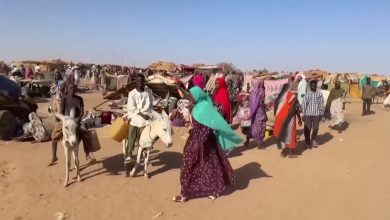Istanbul, Turkey – Diplomatic efforts aimed at securing a lasting truce between Pakistan and Afghanistan have collapsed without a breakthrough, raising serious concerns about a potential escalation of violence along their shared border. The talks, held in Istanbul, concluded without a practical resolution, according to Pakistani officials, who have accused the Afghan Taliban of evading responsibility and resorting to blame-shifting tactics. The breakdown in negotiations marks a significant setback in efforts to stabilize the volatile region and address the growing security concerns stemming from cross-border attacks.
Pakistan’s Information Minister, Ataullah Tarar, issued a statement early Wednesday morning expressing disappointment with the outcome of the Istanbul talks. “The Afghan side continued to deviate from the core issue, evading the main point on which the dialogue process was initiated,” Tarar stated. He further alleged that the Taliban, instead of accepting any responsibility, engaged in a “game of blame, evasion, and trickery,” ultimately leading to the failure of the dialogue to achieve any practical solutions. The core issue, according to Pakistani sources, revolves around the presence and activities of the Tehrik-i-Taliban Pakistan (TTP), a militant group operating from Afghan soil and responsible for numerous attacks inside Pakistan.
The Istanbul negotiations were intended to build upon a ceasefire agreement brokered in Doha on October 19th. However, sources from both Afghanistan and Pakistan revealed to Reuters that the two sides failed to find common ground during the second round of discussions in Istanbul, each blaming the other for the impasse. A Pakistani security official claimed that the Taliban was unwilling to commit to curbing the TTP’s activities, alleging that the group operates with impunity within Afghanistan. In response, an Afghan source familiar with the talks stated that the negotiations ended after a “tense argument” on the issue, with the Afghan side asserting that it has no control over the TTP, which has intensified its attacks on Pakistani forces in recent weeks.
The recent surge in tensions can be traced back to Pakistani airstrikes earlier in October, which targeted alleged TTP hideouts in Afghanistan, including areas near Kabul. These strikes, aimed at eliminating TTP leaders, were followed by retaliatory attacks by the TTP on Pakistani military posts along the 2,600-kilometer border. The escalating cycle of violence has fueled concerns about a broader conflict between the two neighboring countries.
Adding to the complexity of the situation is the fragile security landscape within Afghanistan itself. Since the Taliban’s takeover of Kabul in 2021, the country has faced numerous challenges, including economic instability, humanitarian crises, and the persistent threat of other militant groups, such as ISIS-Khorasan. The Taliban’s ability to effectively govern and control its territory remains a subject of debate, and its alleged inability or unwillingness to address the TTP issue has become a major point of contention with Pakistan.
Last Saturday, Pakistan’s Defense Minister, Khawaja Muhammad Asif, expressed his belief that Afghanistan desires peace but warned that the failure to reach an agreement in Istanbul could lead to an “open war.” Despite the ongoing ceasefire, clashes on Sunday resulted in the deaths of five Pakistani soldiers and 25 TTP fighters near the Afghan border, according to the Pakistani military. This incident underscores the precariousness of the ceasefire and the potential for further escalation.
For more information about News, check our dedicated section.
The collapse of the Istanbul talks has prompted a wave of reactions from regional and international actors. Many have expressed concern about the potential for increased instability in the region and have urged both Pakistan and Afghanistan to resume dialogue. Analysts suggest that a failure to address the underlying issues fueling the conflict could have far-reaching consequences, potentially destabilizing the entire region and exacerbating existing humanitarian crises.
The situation is further complicated by the complex relationship between the Afghan Taliban and the Pakistani state. While Pakistan was initially seen as a key supporter of the Taliban, relations have soured in recent years due to concerns about cross-border terrorism and the Taliban’s alleged harboring of TTP fighters. The Pakistani government has repeatedly called on the Taliban to take concrete action to dismantle TTP sanctuaries and prevent the group from launching attacks into Pakistan. However, these calls have largely gone unheeded, leading to growing frustration and mistrust between the two sides.
The international community is now faced with the challenge of finding a way to de-escalate tensions and facilitate a renewed dialogue between Pakistan and Afghanistan. Some analysts suggest that a multilateral approach, involving key regional players such as China and Iran, may be necessary to address the complex issues at stake. Others emphasize the importance of addressing the root causes of the conflict, including poverty, unemployment, and lack of access to education, which contribute to the recruitment of young people into militant groups.
For Algeria, the instability in the Afghanistan-Pakistan region presents a complex set of challenges. While geographically distant, the potential for the spread of extremist ideologies and the disruption of regional trade routes are matters of concern. DZWatch will continue to monitor the situation closely and provide in-depth analysis of the implications for Algeria and the wider region. The failure of the Istanbul talks underscores the urgent need for a comprehensive and sustained effort to address the root causes of the conflict and promote stability in the Afghanistan-Pakistan border region. Without a concerted effort to address these challenges, the risk of further escalation and regional destabilization remains high.




